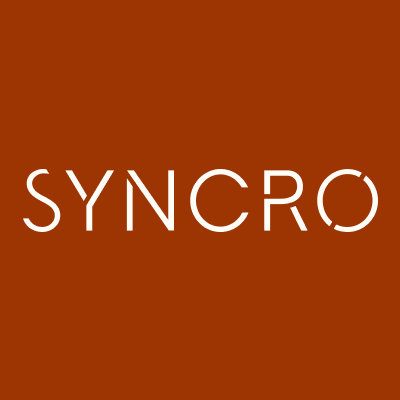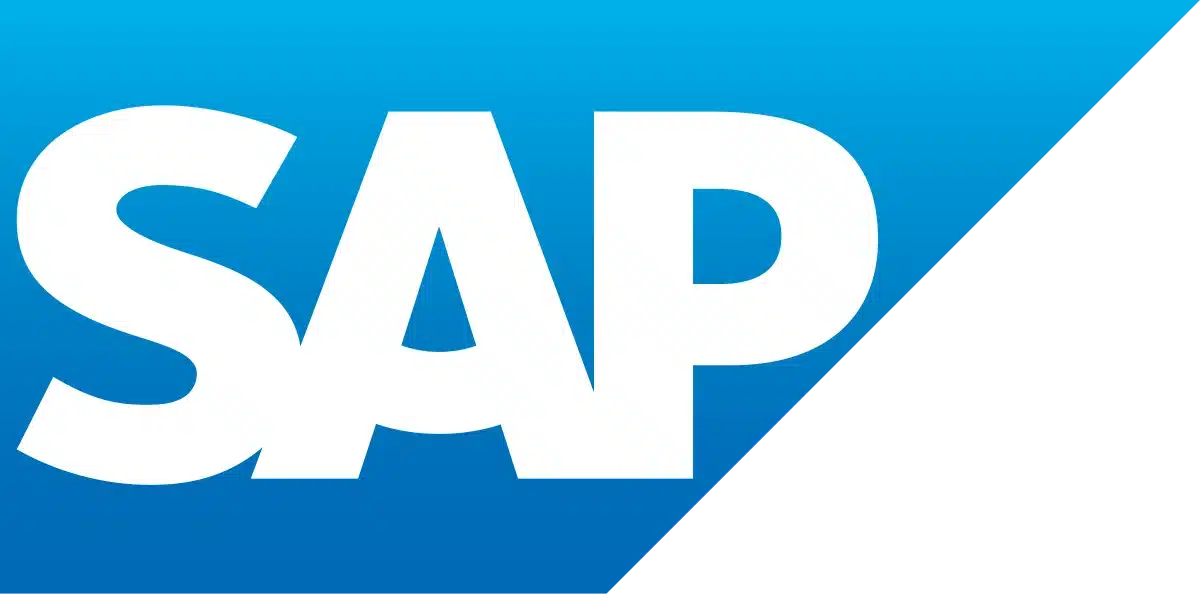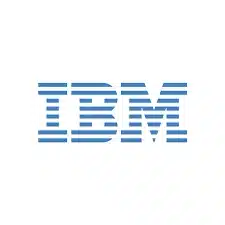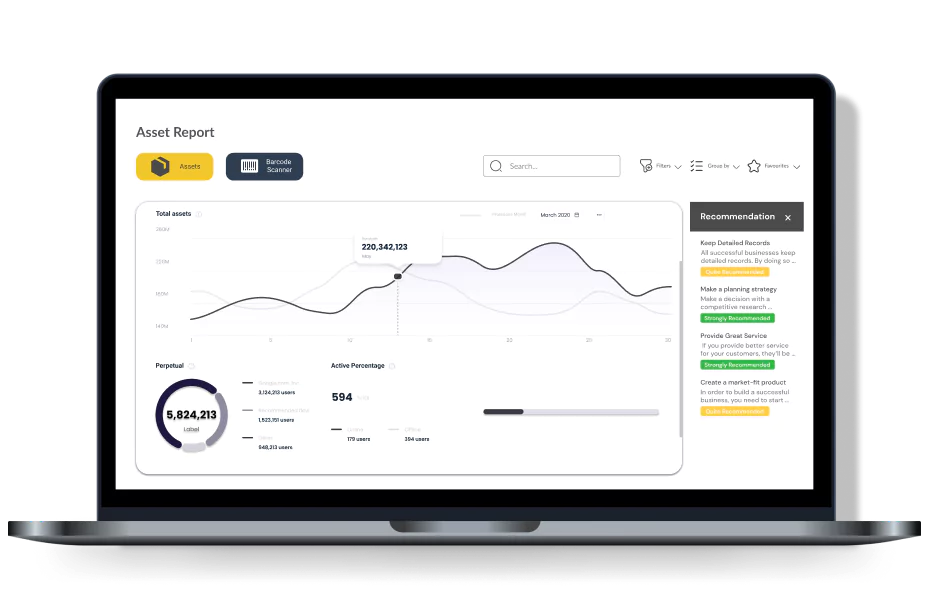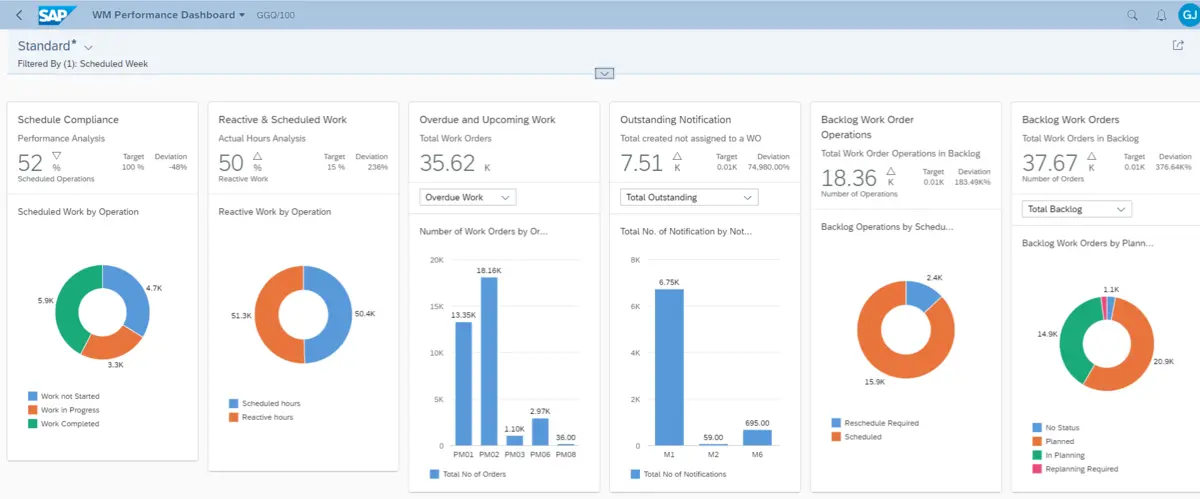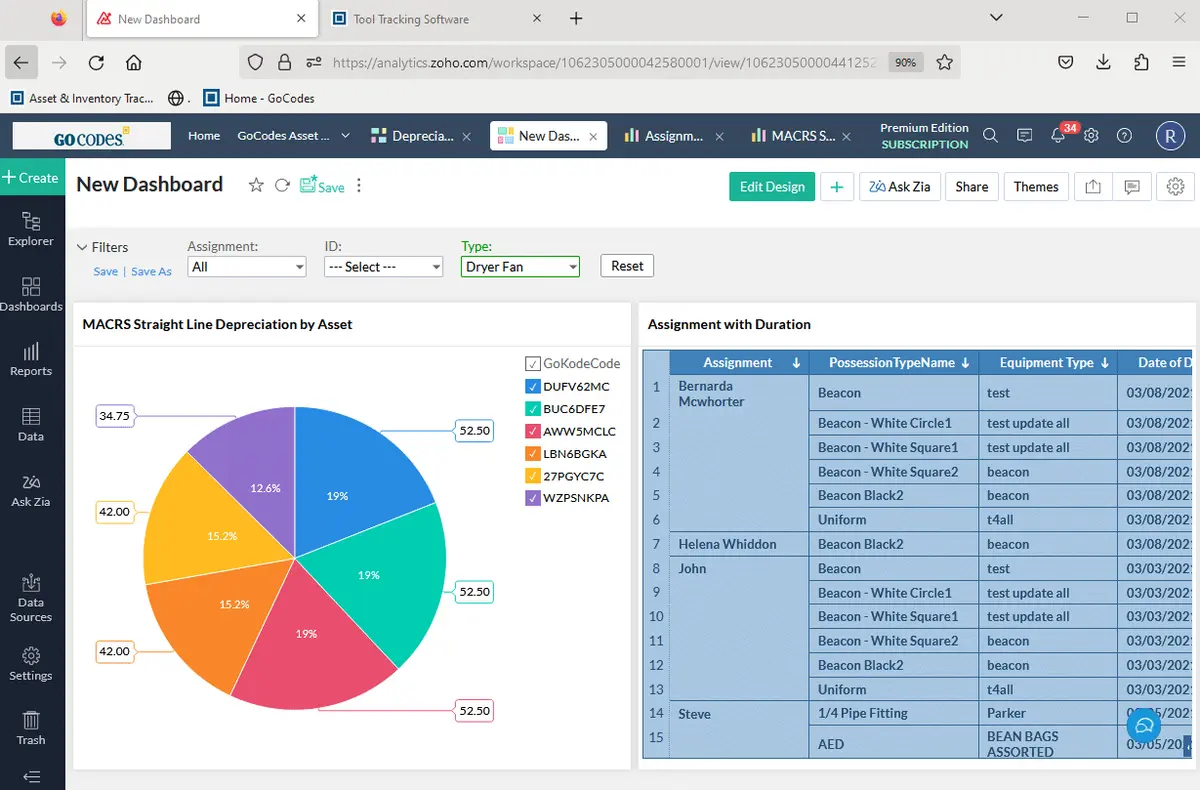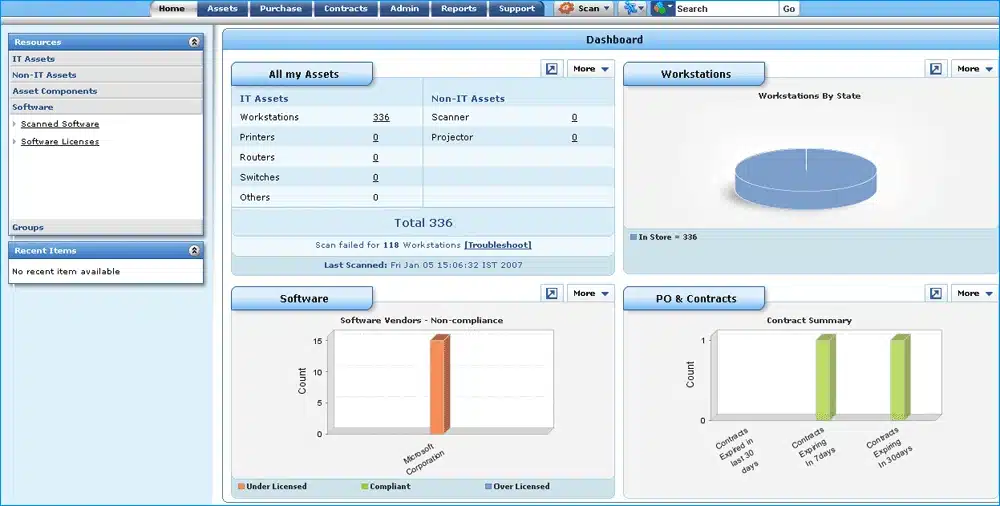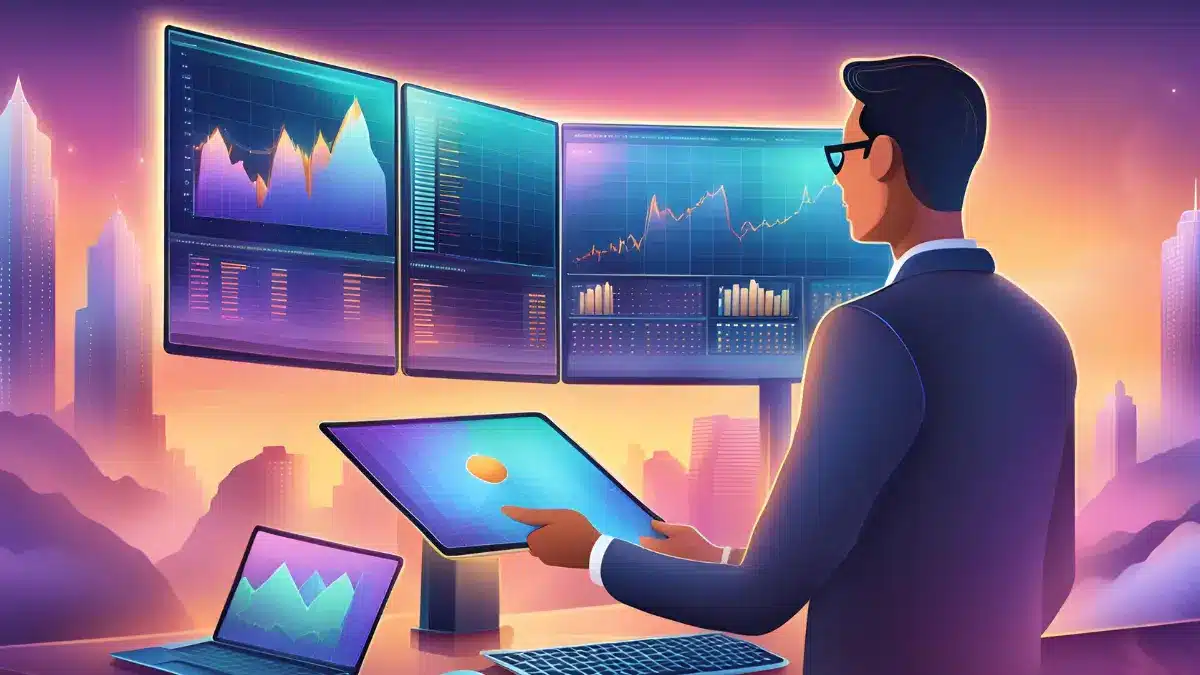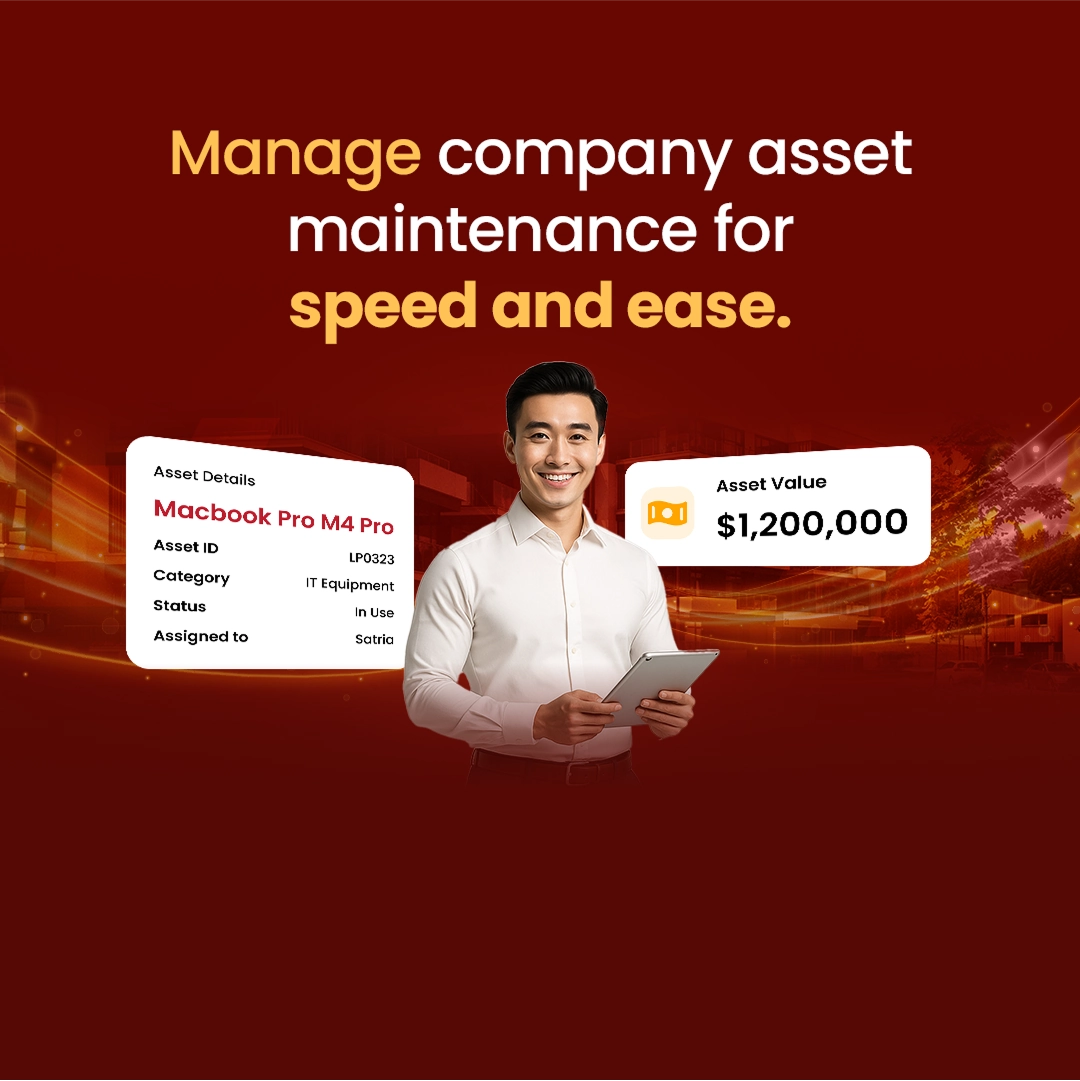With numerous options available, selecting the right system can be overwhelming. To make your evaluation easier, we’ve created a quick overview of the 15 best asset management software options in the Philippines.
Table of Contents

Key Takeaways
|
Quick Overview of the Best Asset Management Software
Here are our top picks for reviewing asset management tools. Each one excels in a specific area of asset management system software.
Best Because
The best end-to-end solution for all types of business needs
Best Because
Best for IT and MSP asset management.
Best Because
Best for large enterprises needing real-time analytics and AI-driven operations
Best Because
Best for heavy industry and technical assets.
Best Because
Best for mobile and field-based tracking.
Best Because
Integrates with a wide variety of applications, but its dashboard is clunky.
Best Because
Best for customizable asset records.
Understanding Asset Management Software in Today’s Businesses
Asset management software is a tool to keep track of assets, like equipment and property, from purchase to disposal. It uses unique tags (QR codes/barcodes) to track asset location, condition, and usage, schedule maintenance, manage each asset lifecycle, and generate reports for optimal performance.
A 2023 industry report from Dataintelo shows the asset management software market valued at around 4.2 billion USD, with rapid growth expected in the coming years. This rise reflects how companies increasingly rely on digital systems to maximize asset productivity and reduce operational losses.
Must-Have Functions in Asset Management Software
Before exploring how the system benefits your organization, it is important to understand the core functions that make Asset Management Software an essential operational tool. These functions support daily asset control and provide the foundation for reliable asset planning and tracking.
1. Centralized asset visibility
Asset Management Software gathers all asset information into one structured platform. It records essential details such as asset type, location, ownership, condition, and activity history, giving teams a unified source for accurate asset monitoring.
2. Asset utilization tracking
The system logs how often assets are used and in what capacity. By tracking asset activity levels, businesses can understand which resources are actively supporting operations and which ones require reallocation or closer evaluation.
3. Maintenance scheduling and tracking
Asset Management Software organizes and schedules maintenance tasks by setting reminders, tracking service histories, and documenting inspections. This ensures every asset receives the necessary upkeep at the right time.
4. Compliance and license monitoring
The system stores asset-related documentation such as warranties, certificates, and software licenses. It monitors expiration dates and update requirements, helping teams stay aligned with internal standards and regulatory obligations.
5. Real-time asset identification and tagging
Using barcodes, QR codes, RFID, or other tagging methods, the software enables rapid identification of assets during audits or daily operations. This function helps maintain accurate records and reduces time spent searching for physical items.
How Asset Management Software Improves Daily Operations
Manually tracking, controlling, and monitoring every registered asset within an organization can be extremely time-consuming and susceptible to mistakes. Modern technologies, like asset management software, simplify these tasks and ensure that assets are utilized and maintained effectively. By leveraging effective equipment maintenance software, businesses can enhance their operational resilience and drive long-term success.
Here are several ways an asset software software supports your business:
- Optimize Asset Lifecycle Management:
Asset management software offers a detailed view of each asset’s journey—from planning and acquisition through operation, maintenance, and eventual disposal. This insight helps determine the appropriate maintenance actions to extend an asset’s lifespan. - Streamline Asset Monitoring:
Regular upkeep, accurate accounting, and timely maintenance maximize the efficiency of each asset, ultimately leading to a higher return on investment. - Enhance Record Accuracy:
Traditional data-tracking methods using spreadsheets or physical documents are prone to human error and inefficiency. In contrast, asset management software centralizes and organizes information into easily digestible segments, providing just the right data for current tasks. - Improve Inventory Management:
The software enables precise and efficient oversight of inventory. Using asset tracking tools like barcodes, QR codes, RFID tags, NFC tags, and GPS trackers, businesses can monitor equipment, vehicles, and hardware in real time with continuously updated inventory information. - Prevent Unnecessary Purchases:
By keeping a close eye on asset conditions and performance, companies can avoid redundant asset purchases and redirect focus and resources to other critical areas of the business.
Need to know!
AI in asset management optimizes usage, predicts maintenance, and improves lifecycle management. Hashy by HashMicro automates tracking, analyzes data, and enhances reliability to reduce downtime.
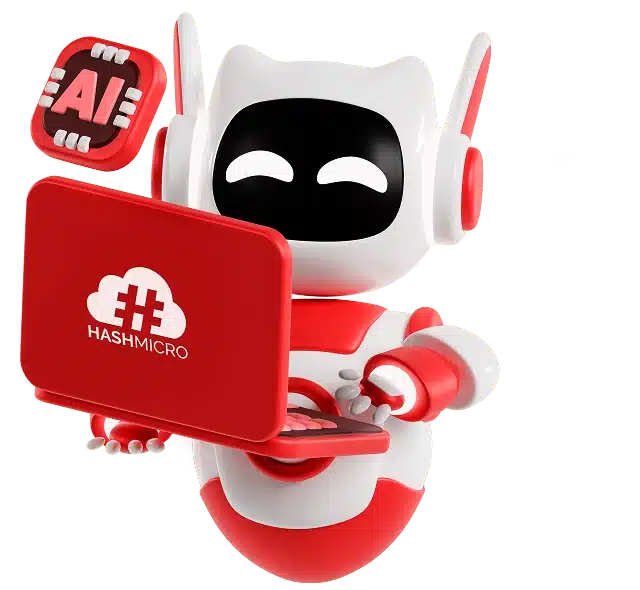
Get a Free Demo Now!
15 Best Asset Management Software in 2026
We have provided a list that highlights each software’s key features, advantages, and targeted business applications, helping you make a well-informed choice.
Below are the 15 best asset management and tracking software in 2026 in the Philippines:
1. HashMicro
HashMicro’s Asset Management Software gives businesses full control over their physical assets, from machinery, fleet and vehicles, to IT and digital assets, with real-time tracking, automated maintenance scheduling, and AI-powered cost analysis.
HashMicro is recognized as the best overall asset management system software, offering versatile and comprehensive tools. Whether you’re handling manufacturing production, mining operations, or office assets, HashMicro helps you reduce losses, optimize asset lifespan, and cut unnecessary costs.
Features
-
- Preventive Maintenance Scheduling: Enables the planning and scheduling of regular maintenance activities to prevent breakdowns and extend the lifespan of assets, ensuring they operate efficiently and reliably.
- Automatic Asset Tracking: Scan barcodes and QR codes and instantly track every asset’s location, value, last used, and status in real-time. Each asset is tagged with a unique identifier.
- Smart Asset Contract Management: Manage activation costs, vendor details, and insurance premiums in a single system, so there will be no missed renewals or misplaced agreements.
- Complete Asset Lifecycle & Risk Monitoring: Automatically logs every transaction, modification, or transfer associated with each asset with version tracking to detect unauthorized edits or missing records.
- Parent & Child Asset Management System: Facilitates the hierarchical organization of assets, where parents’ assets can have associated components or child assets.
- Cost-Effective Asset Purchasing Management: Integrated with procurement systems, enabling businesses to compare vendor prices, check stock availability, and approve purchases within the same platform.
| Pros | Cons |
|
|
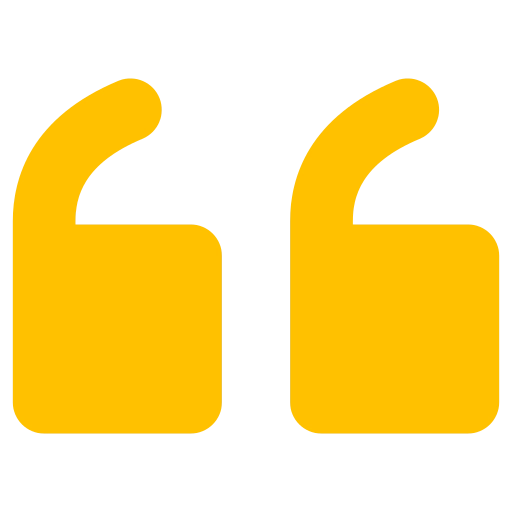
Are you wondering how much comprehensive asset software will cost your business? Use our pricing calculator to get a customized quote today.
2. Syncro
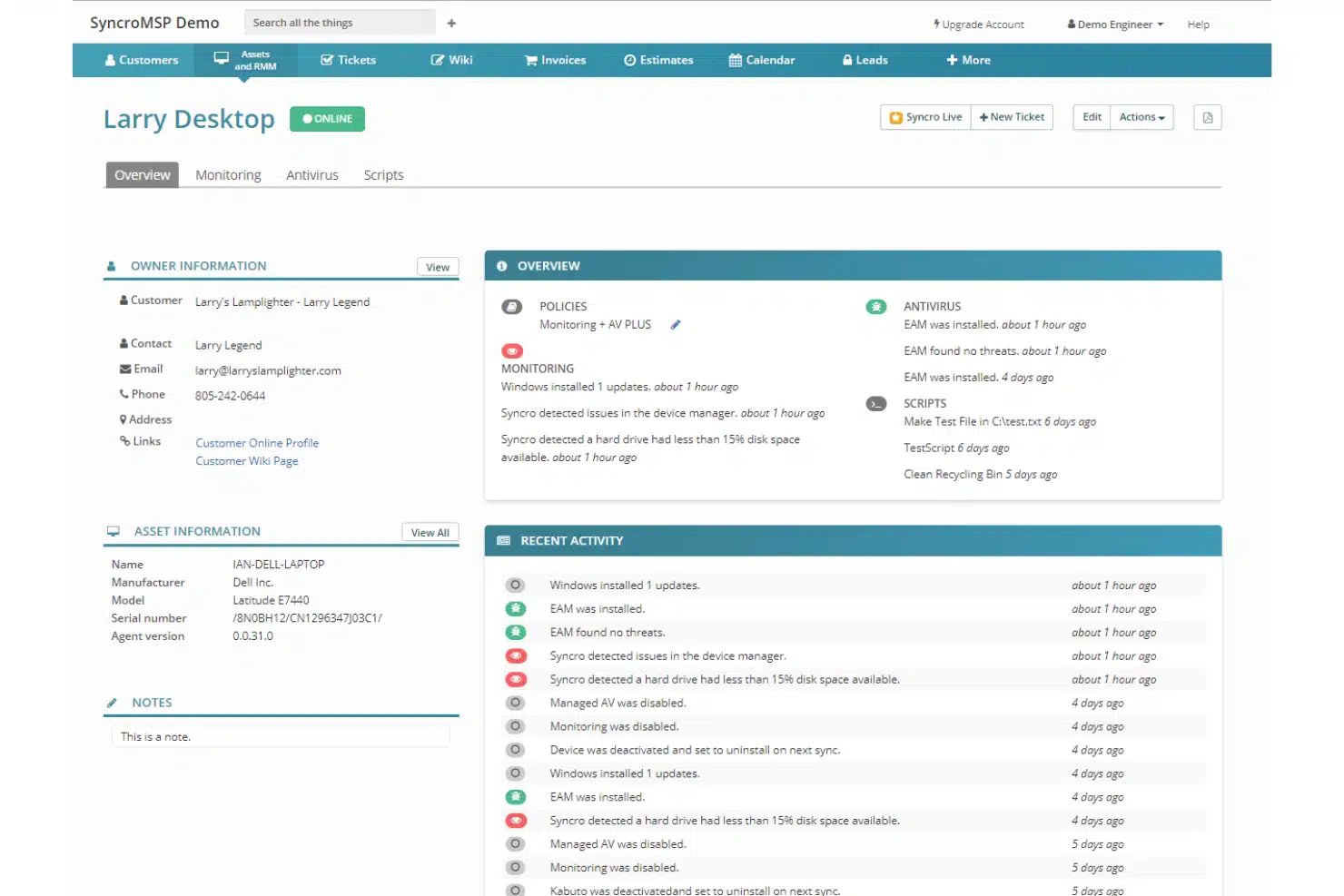
Additionally, it features automated remediation, allowing the system to automatically create tickets, send SMS alerts, and execute scripts when specific alerts are triggered.
Features
- Customizable IT Ticketing System
- AI-Powered Ticket Management
- Flexible Invoicing & Payments
- Helpdesk Functionalities
- Back-Office Automation
- Detailed Reporting
Pricing
Syncro starts at $139/month
| Pros | Cons |
|
|

3. SAP Asset Intelligence Suite
SAP Asset Intelligence Suite provides a cloud-based solution to facilitate collaborative asset management. This platform enables businesses to share and manage equipment information and insights effectively.
Features
- Asset management across stakeholders
- Predictive maintenance
- Analytics and Reporting
Pricing
Available upon request
| Pros | Cons |
|
|

4. IBM Maximo
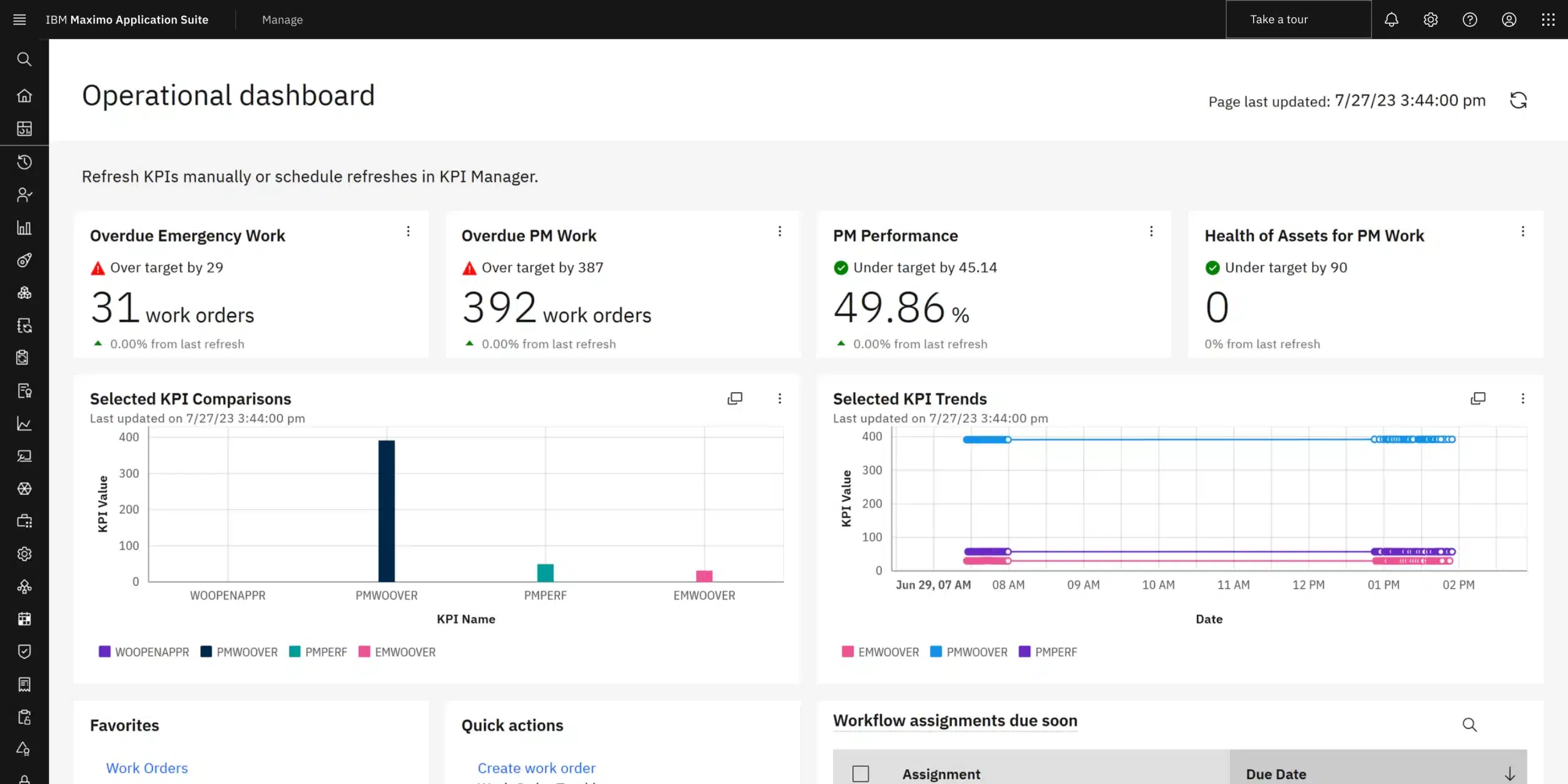
The suite offers intuitive dashboards, automated workflows, and predictive analytics, which take maintenance and inspection tasks into a centralized operations hub to improve asset performance and business continuity.
Features
- Enterprise asset management (EAM) with AI
- Mobile EAM for field technicians
- Reliability centered maintenance
- Asset performance management
Pricing
IBM Maximo starts at $300/month
| Pros | Cons |
|
|

5. GoCodes
GoCodes offers a powerful, all-in-one asset tracking solution designed for fleet vehicles, heavy equipment, and hand tools.
With real-time GPS tracking, advanced telematics, and patented QR tag technology, businesses can monitor utilization, maintenance, and location history from anywhere, ensuring better asset control and operational efficiency.
Features
- Automated asset tracking
- Kitting/grouping
- Maintenance tracking
- Patented QR tags for tracking assets
- Real-time GPS and telematics
Pricing
GoCodes premium starts at $1,000/year, GoCodes premium elite starts at $1,750/year
| Pros | Cons |
|
|

6. Asset Panda
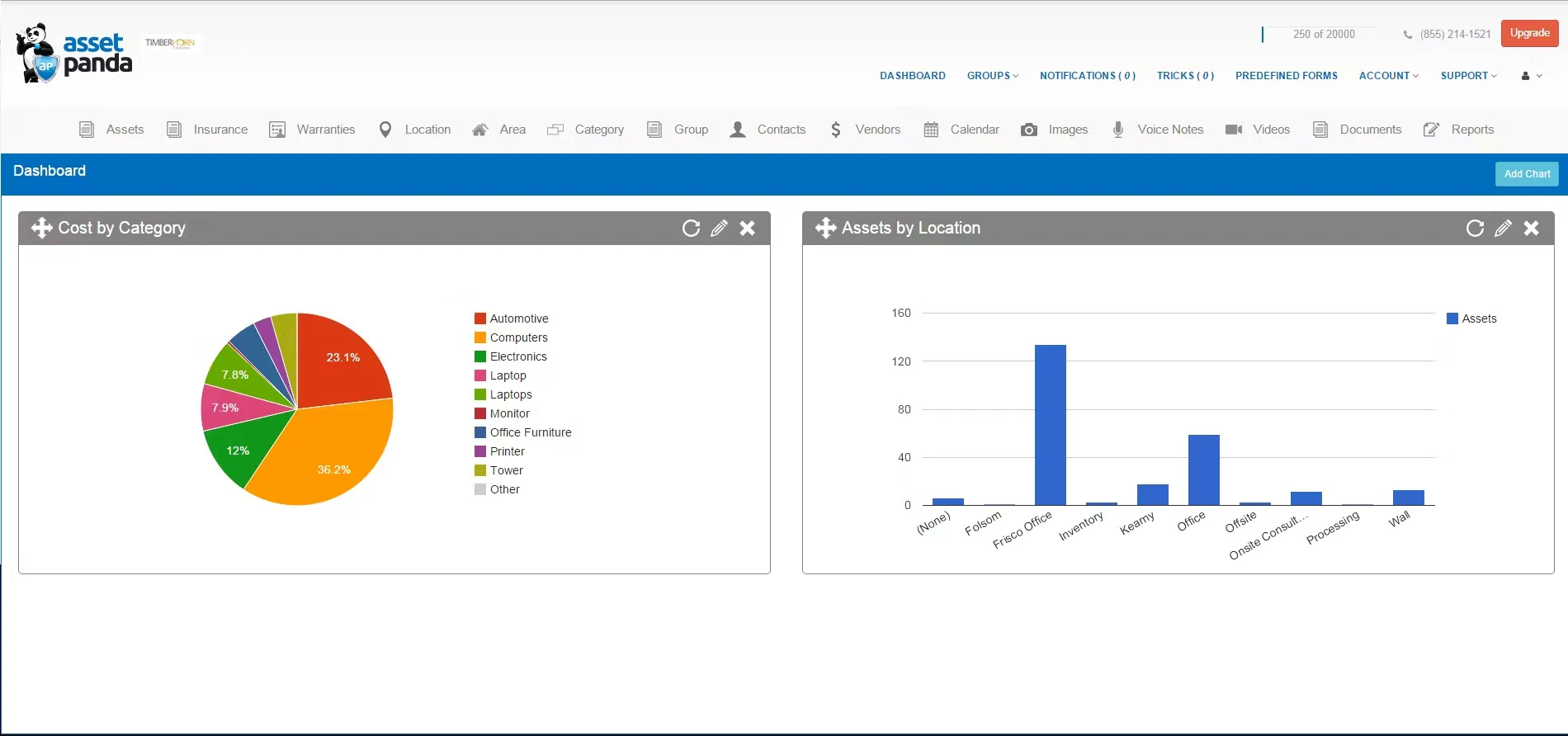
Features
- Asset lifecycle management
- Custom barcode creation and recognition
- Asset-kitting system for grouping related assets
- Equipment tracking
- Maintenance scheduling
Pricing
Asset Panda starts at $125/month
| Pros | Cons |
|
|

7. HxGN Enterprise
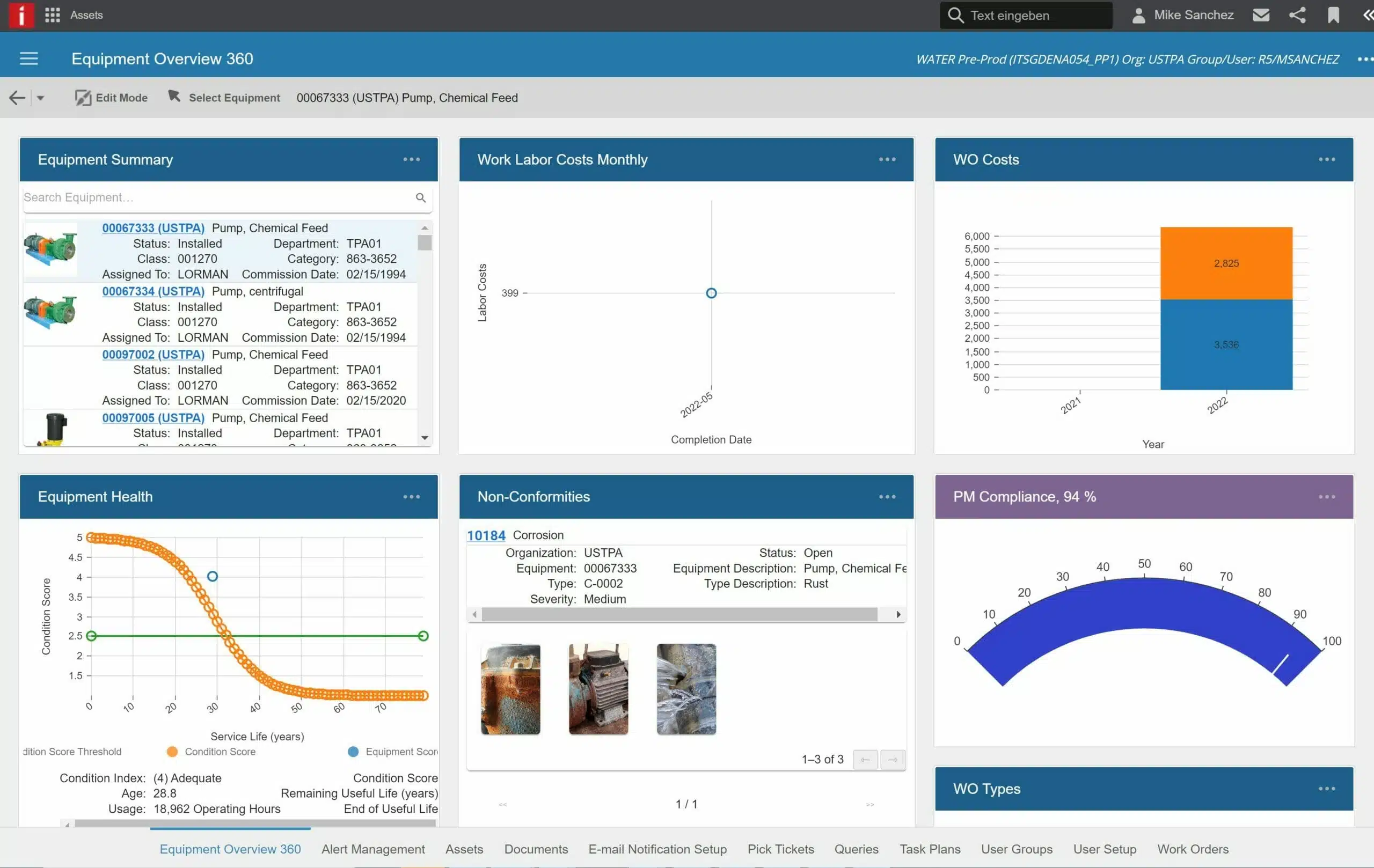
The platform includes advanced lifecycle management tools, such as risk management features and an Asset Performance Management (APM) tool, to enhance asset durability and efficiency.
Features
- Artificial intelligence (AI) and machine learning (ML)
- Industry-specific versions for healthcare, manufacturing, and energy sectors
- Integrated analytics
- Case management features
Pricing
Available upon request
| Pros | Cons |
|
|

8. EZ OfficeInventory
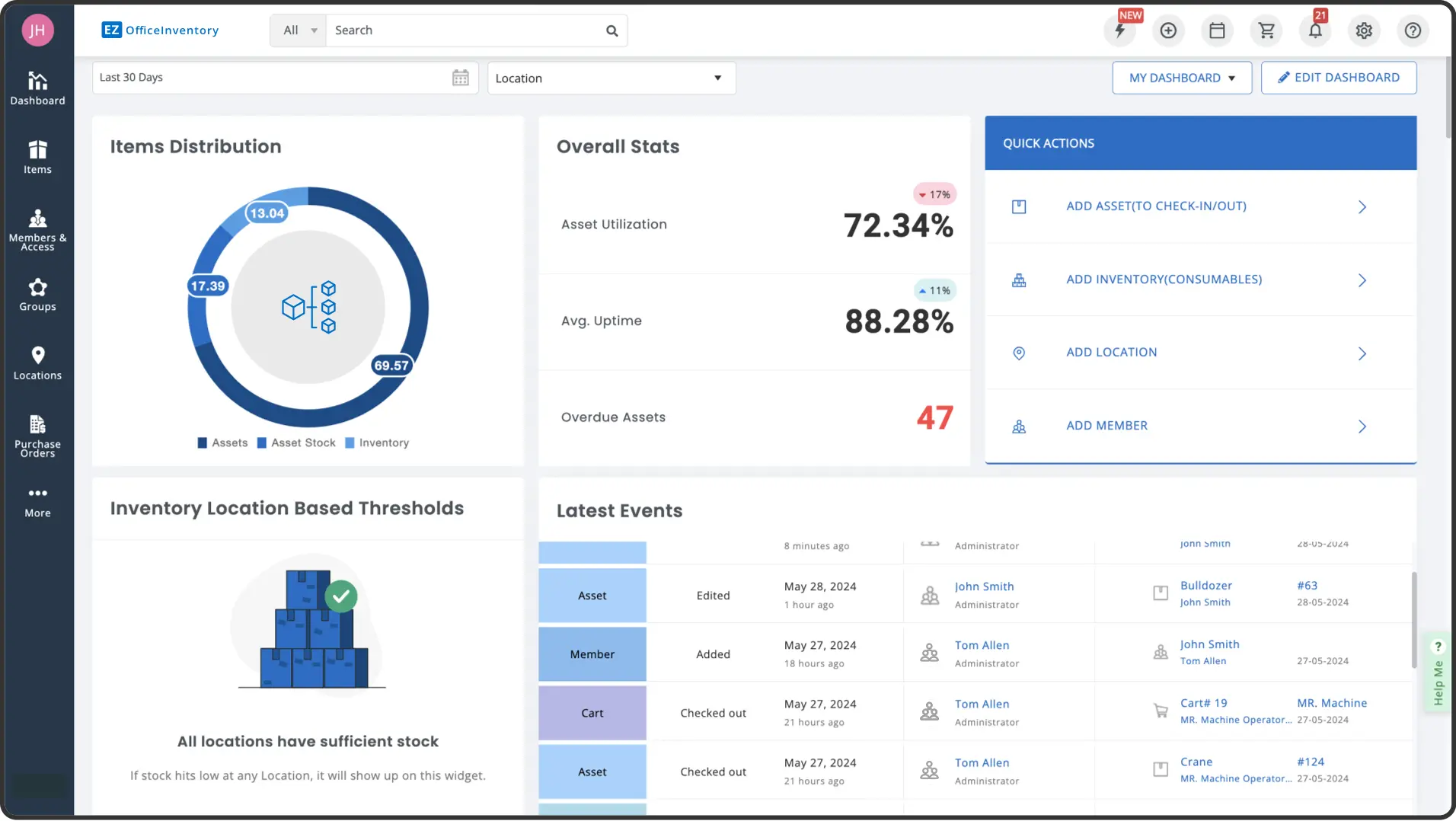
Features
- Asset tracking
- Maintenance management
- Location and status update
- Reports and insights
Pricing
EZ OfficeInventory starts at $40/month
| Pros | Cons |
|
|

9. Zoho Asset Management System
Zoho Asset Management System provides tools designed to help businesses of all sizes manage and track their assets efficiently. As part of the extensive suite of business applications offered by Zoho, known for its innovation and affordability, this asset management solution has gained a reputation for being powerful and user-friendly.
Features
- Asset lifecycle management
- Maintenance scheduling
- Depreciation calculation
- Reports and analytics
Pricing
Available upon request
| Pros | Cons |
|
|

10. Ivanti
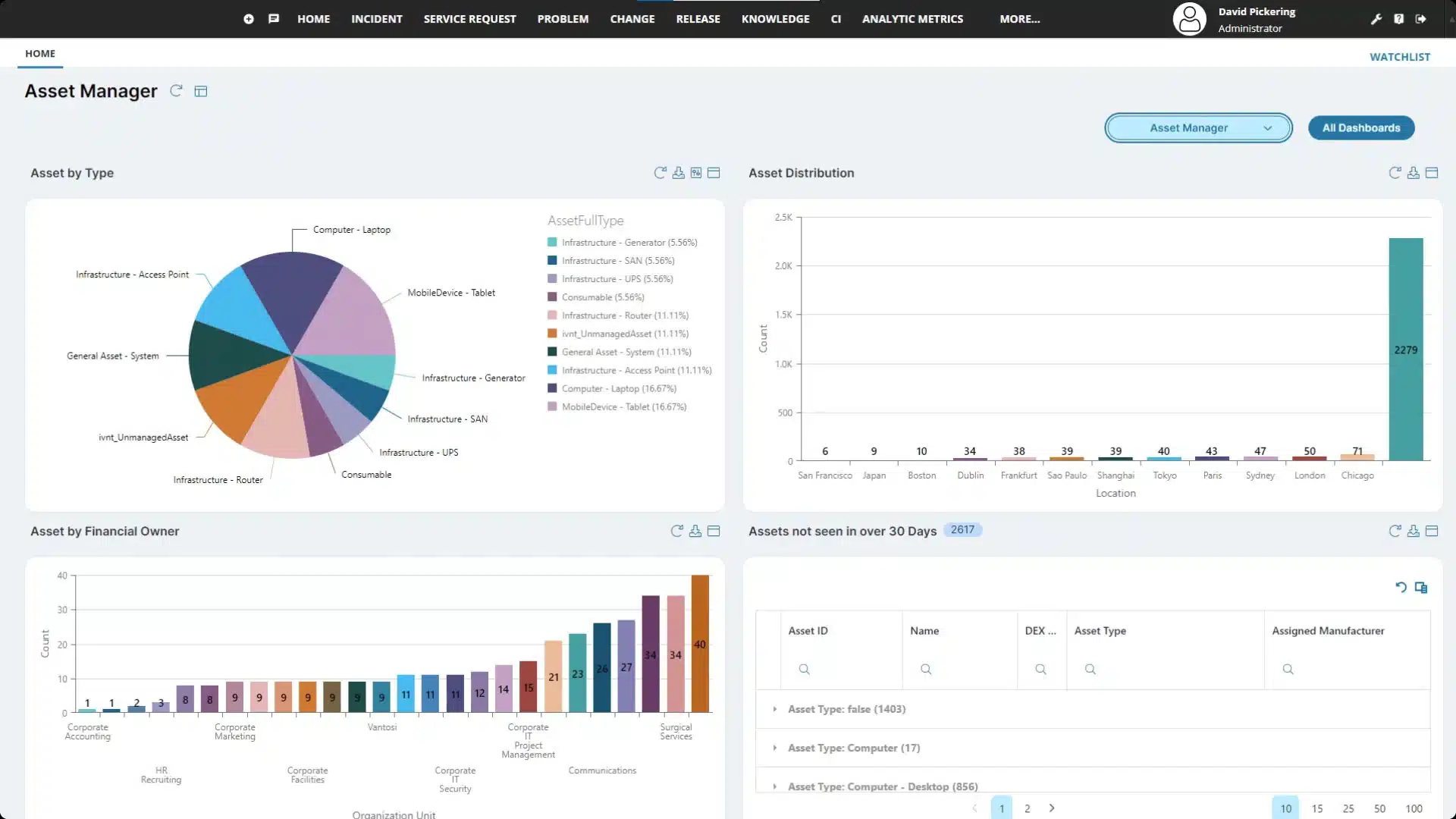
Features
- Lifecycle management
- License management
- Discovery and inventory
Pricing
Available upon request
| Pros | Cons |
|
|

11. SolarWinds
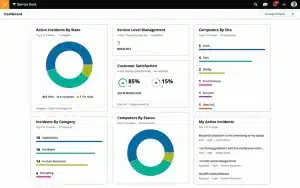
It also centralizes contract management, integrates with IT service desks for faster issue resolution, offers real-time asset visibility, and optimizes costs by managing software licenses and ensuring proper asset allocation.
Features
- Automated asset discovery and tracking
- Centralized contract management
- Service desk integration for asset details linking
- Software license management
- Device allocation and outdated asset management
Pricing
SolarWinds starts at $39/month
| Pros | Cons |
|
|

12. Limble
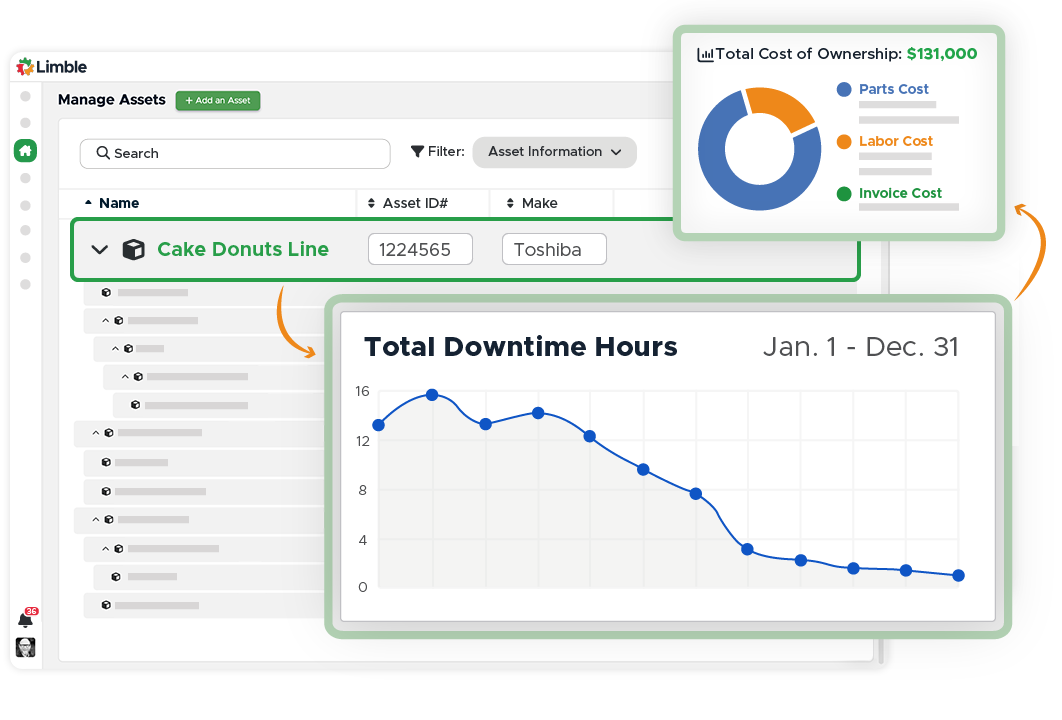
With Limble, organizations can monitor, manage, and schedule preventive maintenance for all their assets. Ensure machinery and equipment run at peak efficiency with no more manual reminders needed.
Additionally, its mobile accessibility ensures that maintenance teams can manage tasks efficiently, whether on-site or remotely.
Features
- Preventive maintenance with automated scheduling
- Asset management from assets and their related parts
- Tracking assets with metrics
- Reporting and dashboards
Pricing
Limble standard starts at $33/month, Limble premium plus starts at $79/month
| Pros | Cons |
|
|

13. AssetTiger
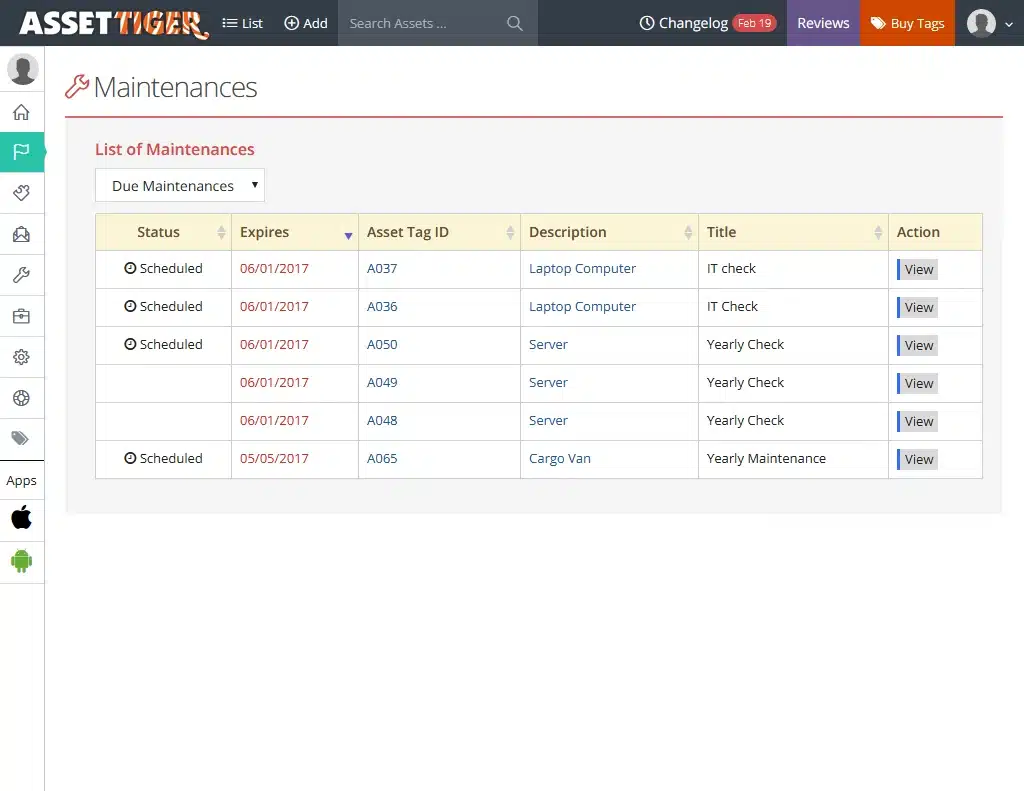
The platform simplifies asset management with a user-friendly check-in and check-out system, making it easy to reserve and track assets. Users can even reserve assets in advance directly from their mobile devices for added convenience.
Features
- Asset tracking based on depreciation, check-out times, and maintenance schedules
- Custom report generation on inventory status, asset usage, and overall performance
- Automated notifications for contract due dates
Pricing
AssetTiger starts at $230/year
| Pros | Cons |
|
|

14. ManageEngine
ManageEngine Mobile Device Manager Plus is a specialized asset performance management software designed to streamline the organization and control of mobile devices within a company.
This Mobile Device Management (MDM) software allows businesses to manage smartphones, laptops, tablets, desktops, and other devices, including software management capabilities.
Since mobile devices are among the most commonly managed fixed assets, ManageEngine focuses entirely on this area of asset management. Its dedicated platform makes it easier to organize, reserve, and secure essential business tools like smartphones.
Features
- Cross-platform accessibility, including iOS, Android, and Windows
- Automatically deploy approved applications to devices
- Remote company data wipe from devices
- Compliance enforcement for each device according to company policies
Pricing
Available upon request
| Pros | Cons |
|
|

15. Flexera
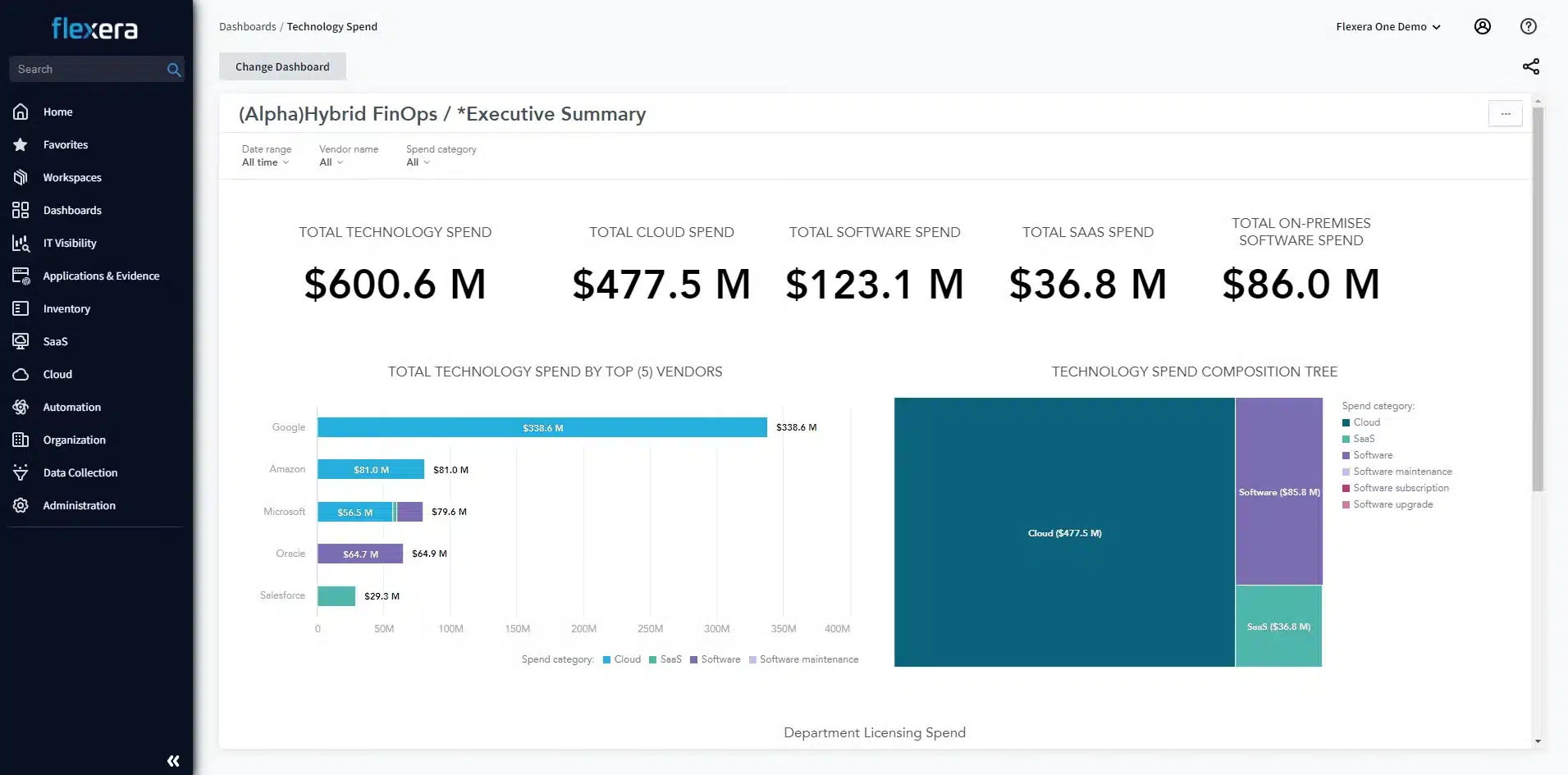
This includes capabilities such as software asset management, hardware asset management, and IT asset lifecycle management.
Features
- Comprehensive asset discovery
- License optimization
- Asset lifecycle management
- Advanced reporting and analysis
Pricing
Available upon request
| Pros | Cons |
|
|

Full Comparisson of Best Asset Management Software
Choosing the right manufacturing asset management software is a critical decision for businesses aiming to maintain asset visibility, control costs, and support long-term operational efficiency. With many solutions offering different strengths—from IT asset tracking to enterprise-grade maintenance and lifecycle management—it is important to compare each option based on real business needs. The comparison below provides a clear overview of the best asset management software, highlighting their ideal use cases, strengths, limitations, and pricing to help decision-makers evaluate the most suitable solution for their organization.
| Brand | Best for | Pros | Cons | Price |
|---|---|---|---|---|
| 1) HashMicro | The best end-to-end solution for all types of business needs | 1) User-friendly interface and easy navigation 2) Detail customizations to suit the company’s needs 3) It can be integrated into other systems, including manufacturing, inventory, accounting, sales, and CRM 4) 100% unlimited users without additional user fees | 1) Implementation duration may take longer for businesses with more complex needs | Contact Vendor |
| 2) Syncro | Best for IT and MSP asset management. | 1) Comprehensive integration of PSA and RMM 2) Automated scripting capabilities for data collection | 1) Reporting features not visually presentable 2) Support is only available through email | Starts at $139/month |
| 3) SAP | Best for complex enterprise asset structures. | 1) Collaboration across asset network 2) Integration with the SAP ecosystem | 1) It can be complex to use 2) Implementation can be costly 3) It may require substantial training | Contact Vendor |
| 4) IBM | Best for heavy industry and technical assets. | 1) Customizable for diverse operational requirements 2) Robust preventive maintenance scheduling | 1) Direct support from IBM might be slower 2) Overwhelming information in the dashboard 3) Complexity in navigating the application | starts at $300/month |
| 5) GoCodes | Best for mobile and field-based tracking. | 1) User-friendly interface 2) Ease of use 3) Flexibility | 1) Limited features 2) Dependence on the mobile device | starts at $1.000/month |
| 6) Asset Panda | Best for customizable asset records. | 1) Mobile Accessibility 2) Integration capabilities | 1) Steep learning curve 2) Implementation can be costly | starts at $125/month |
| 7) HxGN | Best for for organizations across various sectors | 1) Advanced asset tracking 2) Customizable user interface | 1) Features are complex and takes extensive time to learn 2) Slower product updates 3) Limited integration | Contact Vendor |
| 8) EZ OfficeInventory | Best for improve asset visibility, streamline maintenance processes, and enhance operational efficiency | 1) Intuitive user interface 2) Customization options | 1) The learning curve for advanced features 2) Integration limitations | starts at $40/month |
| 9) Zoho | Best for basic asset tracking needs. | 1) User-friendly interface 2) Highly customizable 3) Can be integrated into other systems | 1) Steep learning curve 2) Features limitations | Contact Vendor |
| 10) Ivanti | Best for Businesses prioritising IT security, compliance, and efficiency | 1) Asset visibility 2) Cost reduction 3) Data security | 1) Complexity for users 2) Implementation can be costly | Contact Vendor |
| 11) SolarWinds | Best for for medium to large enterprises seeking a scalable and comprehensive IT management solution | 1) User-friendly interface 2) Scalable with business growth | 1) Resource intensive and might affect performance if not provisioned. 2) Time-consuming initial setup 3) Requires stringent security measures when deploying | starts at $39/month |
| 12) Limble | Best for for manufacturing companies, facilities management teams, and construction service companies | 1) User-friendly interface 2) Has mobile accessibility | 1) Initial setup time takes a long time 2) Limited integration with existing systems | starts at $33/month |
| 13) AssetTiger | Best for small to medium-sized businesses, educational institutions, and non-profit organizations | 1) Unlimited users 2) Comprehensive asset tracking | 1) Limited advanced features 2) Only supports fixed asset tracking 3) Cannot integrate with other systems | starts at $230/month |
| 14) ManageEngine | Best for for medium to large-sized businesses seeking a comprehensive IT | 1) Monitor application usage 2) Can erase company data remotely from lost and stolen devices | 1) Cloud-based version may experience occasional bugs 2) User interface can be somewhat complex 3) Limited macOS support | Contact Vendor |
| 15) Flexera | Best for large enterprises with complex IT infrastructures | 1) Robust compliance management for licensing agreements 2 )Effective license management | 1) Reporting capabilities is limited 2) Purchasing module needs to be improved 3) Automated integration for contract, scheduling, and notifications is needed | Contact Vendor |
Asset Management Software Recomendation According to Business Needs
- For end-to-end asset management across departments and industries: HashMicro
- For IT service providers and MSP-focused asset control: Syncro, ManageEngine
- For large enterprises with complex and enterprise-grade asset structures: SAP, IBM, Flexera
- For field-based, mobile-first asset tracking and monitoring: GoCodes, EZ OfficeInventory
- For businesses needing customizable asset records and flexible configurations: Asset Panda, Zoho
- For manufacturing, facilities, and maintenance-driven asset management: Limble, HxGN
- For IT asset visibility, compliance, and scalable infrastructure management: Ivanti, SolarWinds
- For small to mid-sized organizations with basic fixed asset tracking needs: AssetTiger
Tips to Choose the Best Asset Management Software for Your Business
Choosing the best asset management software for your business is a critical decision that can significantly impact your operational efficiency, financial health, and long-term growth. To navigate this complex process, consider the following tips.
Many of these considerations also apply when evaluating a property management software, especially if your business manages physical locations or real estate assets.
- Identify your business needs: Consider factors like the size of your asset inventory, the types of assets you manage (tangible vs. intangible), and your primary challenges in asset management.
- Prioritize key features: Prioritize the features that are most important to your business, such as asset tracking, maintenance scheduling, asset valuation, and reporting capabilities. Ensure the software you choose excels in these key areas.
- Consider user-friendliness: The software should be intuitive and easy for all team members. User-friendly interfaces and accessible training materials can significantly enhance adoption rates and operational efficiency.
- Evaluate integration capabilities: The ability to integrate with other systems is crucial. Seamless integration ensures that your asset management system works in harmony with your existing workflows, minimizing disruptions and data silos.
- Research support and services: Effective customer support and regular software updates are essential. Look for vendors with a strong reputation for customer service, comprehensive training programs, and proactive software maintenance.
- Review case studies and testimonials: Case studies and testimonials from businesses similar to yours can offer real-world insights into the effectiveness of different software solutions.
Conclusion
Implementing asset management software in today’s fast-paced business environment is more important than ever. It helps streamline operations, optimize asset use, and support smarter decision-making, all of which directly contribute to better business performance.
With many solutions now available in the market, businesses have the opportunity to choose a system that fits their scale, industry, and operational needs. The right asset management software can improve efficiency, reduce unnecessary costs, and support better control over the entire asset lifecycle.

FAQ About Asset Management Software
-
Is asset management part of ERP?
Although an ERP system can assist with asset management, it primarily focuses on centralizing core business information and managing daily operations. On the other hand, EAM software is specifically designed for asset management, offering detailed modules for monitoring and analyzing asset performance.
-
What are the 3 main asset management types?
The three main asset management types are physical asset management (e.g., equipment, buildings), financial asset management (e.g., stocks, bonds), and intangible asset management (e.g., intellectual property, patents).
-
What is an example of asset management?
Managing the estate of a wealthy individual exemplifies asset management. Overseeing multiple investments and properties is a full-time responsibility, necessitating the hiring of an asset manager.
-
What is the objective of an asset management system?
An asset management system’s objective is to optimize asset usage, reduce operational costs, and extend the asset’s life while ensuring compliance with relevant regulations.









